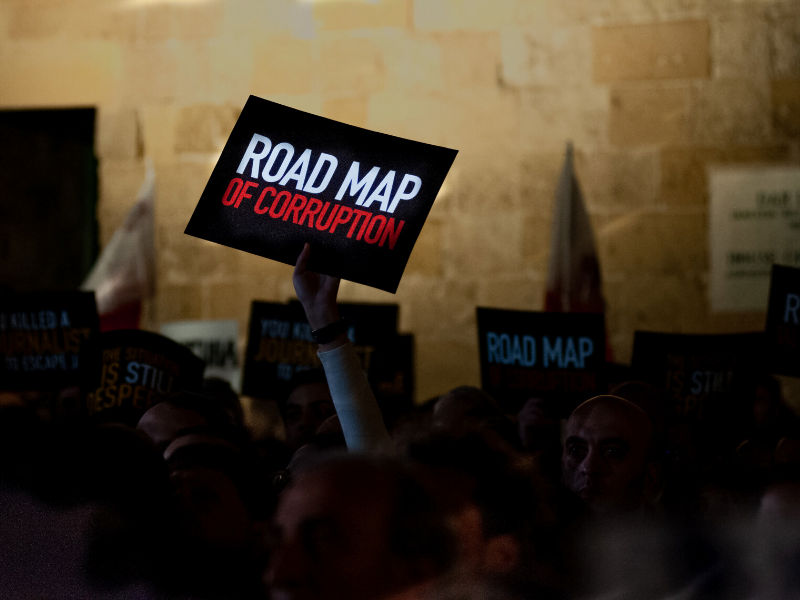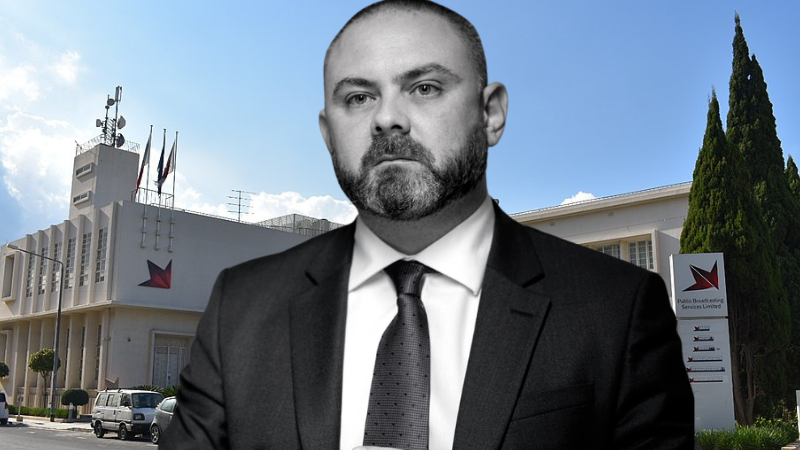Strengthening a country’s integrity is one of the key points in battling corruption, according to Transparency International’s Regional Coordinator for Western Europe and Canada, Nacho Espinosa.
Espinosa spoke to The Shift following the publication of the organisation’s annual Corruption Perception Index in which Malta plummeted six points since 2012. Malta is now categorised as one of the “countries to watch”.
“Political will and a clear commitment to fight corruption beyond party lines, is always a good place to start,” he told The Shift.
Explaining the link between perception of corruption and reality, Espinosa argued that corruption is directly linked with expectations (and therefore perception).
The Shift also asked the expert about the way forward for Malta, where Espinosa highlights flaws and recommendations which have previously been noted by the likes of the European Union and the Council of Europe, such as Malta’s golden visas and flaws in tackling financial crime.
“In summary, a good recipe for Malta, as for any other country would be: less money in politics, and more people affecting policies, which is likely to result in more integrity and less corruption,” he said.
How significant is Malta’s six-point drop when compared to other countries? Does this rapid plummeting happen often?
When it comes to corruption, any country’s race is with itself, and not with any other. While the setting of norms by regional and international institutions can be instrumental, and international cooperation is of the essence in the fight against transnational corruption, the role of countries remains crucial.
We have seen a significant decline in the Corruption Perceptions Index (CPI) – due to higher perceived corruption levels – by countries like Canada (-7 since 2012) and Australia (-8 since 2012).
Malta’s CPI score in 2019 (54) has not changed since the previous year, but if we look long term we see a six-point drop since 2012. This trend can be worrying. Such plummeting does not happen in democratic countries in general, and even less in EU countries in particular.
European and national institutions in EU countries constitute a threshold of integrity that act as a safety net to protect against corruption. But sometimes, countries in the EU and abroad, fail to continuously improve their integrity systems; do not apply new norms and standards to fight corruption; or simply yield to undue influence.
Good news is that this trend can be reversed, and Malta has the tools, and the opportunity to do so if there is political will.
Some may argue that perception does not necessarily mean reality. What’s your answer?
Perception is relevant because, as academia has already established, corruption is directly linked with expectations. In a bribe, there is always the expectation that it will be accepted, and the receiver is expected to deliver some benefits for accepting the bribe.
But also, perception is only one way to measure corruption, the other two alternatives are to look at the cases of corruption (as in court cases ruled, for example) or actual experiences of corruption by citizens.
Transparency International has recently released the Global Corruption Barometer surveys for Africa, the Americas, and the Middle East and North Africa, in which we measure the direct exposure of regular citizens to corruption. For these regions, we see a very strong correlation between perception of corruption (in the public sector as per experts’ opinion, which is the CPI) and the direct experience of corruption by citizens.
This year we plan to release a similar report on how often Maltese and other EU citizens experience corruption. We will then see whether perception matches reality or not, I expect it will be.
The Corruption Perception Index report notes: “It’s no wonder that two years after the assassination of journalist Daphne Caruana Galizia, who was killed while reporting on corruption, the country is still mired in corruption… given that it was governed with impunity for decades by two political parties”. What, in your view, is the impact of Malta’s two-party system on rule of law and democracy?
Malta is a democracy – albeit a “flawed” one – and that helps its fight against corruption.
The 2018 edition of the CPI established a strong correlation between integrity and democracy. This direct association is reasonable and was to be expected: democratic institutions help to ensure law enforcement; provide checks and balances; protect press freedom and enhance accountability, and as result, when democracies deliver and rule of law functions, undue influence and corruption is limited.
As stated in the CPI report, “when corruption seeps into the higher levels of the political system, corrupt leaders often try to subvert those democratic institutions” that act as obstacles and remedies against corruption.
Furthermore, this year’s CPI looked at political decision-making and found that there are lower levels of corruption in countries with wide consultation processes that allow a plurality of stakeholders to influence decision-making. Again, this is not a surprise, when policies are designed with the public interest in mind, the particular interests of the corrupt are left out. In corrupt set ups policymaking is also exposed to undue influence by unregulated flows of money.
In summary, a good recipe for Malta, as for any other country would be: less money in politics, and more people affecting policies, which is likely to result in more integrity and less corruption.
During a panel on corruption at the World Economic Forum together with Transparency International’s Delia Ferrerira Rubio, Matthew Caruana Galizia, the son of Daphne Caruana Galizia, said: “if something radical isn’t done in Malta (about corruption by the government), things will just be left to fester, and society won’t heal either because the wound will just remain open”. Do you agree?
I agree with Matthew in that, political corruption is always an urgent matter that needs to be addressed with a radical commitment to integrity. Some of the many wrongs that corruption brings cannot be undone, and the Caruana Galizia family knows that better than any of us.
One of the many evils of corruption is that it undermines our common ground, and societies suffer when that happens. Corruption occurs when the few take advantage of what belongs to all.
Political corruption happens when undue influence drives policy away from the public interest, when the conventional democratic forms for citizens’ participation are overridden through back doors. Then there is disenchantment – as we have seen in Malta recently – citizens disengage and democracy suffers.
In your opinion, what could Malta do in order for this rank to improve?
Since the 1990s Malta has lived an economic success. But we are now learning that this accomplishment has not been paralleled with all the necessary regulatory frameworks and the scrutiny required to avoid loopholes, prevent undue influence, and ensure a fairer balance of power.
Economic growth cannot be at the expense of integrity and rule of law, because if it is, it will not be for everyone.
Transparency International, but also many other institutions, have already pointed out what Malta could do to fight political corruption and illicit money flows better. It is not about the ranking, it is about more integrity in Malta.
But it is important to acknowledge first that there is an issue that needs to be solved. There are very clear signs that such a problem exists. To cite but one example, the so-called Luanda Leaks explains how Isabel dos Santos, the daughter of the former President of Angola, set up a complex scheme of shell companies to allegedly channel undue profits that were probably enabled by nepotism. Of those shell companies, 14 were set up in Malta; and a 14-page report commissioned by dos Santos, presented the tax advantages of Malta for such dealings.
The Council of Europe has pointed to Malta’s inability to pursue complex financial crime and indicated that “organised crime and fraud generate a significant part of the foreign proceeds laundered in Malta. Domestic crime also feeds money laundering in Malta”.
The European Parliament has called attention to the threats to the independence of the judiciary and police from the office of the former PM, and an IMF report indicates that Malta rarely follows the trail of money when it’s of unclear origin.
We, at Transparency International, have already pointed at the risks of “golden visas”. Also, the recently approved EU directive for the protection of whistleblowers is an opportunity for Malta – and all EU countries – to protect those who come forward and put their own lives at risk in the fight against corruption.
Lobbying and revolving doors remain an issue, and it is not surprising that in his new role as lobbyist ex-prime minister Joseph Muscat has already met with Prime Minister Robert Abela.
Corruption is a multifaceted problem to be addressed through multiple actions. Political will and a clear commitment to fight corruption beyond Party lines is always a good place to start. The question is for Maltese society to decide whether integrity is perceived as an obstacle to economic success or as a guarantee for growth to be fair and sustainable.













